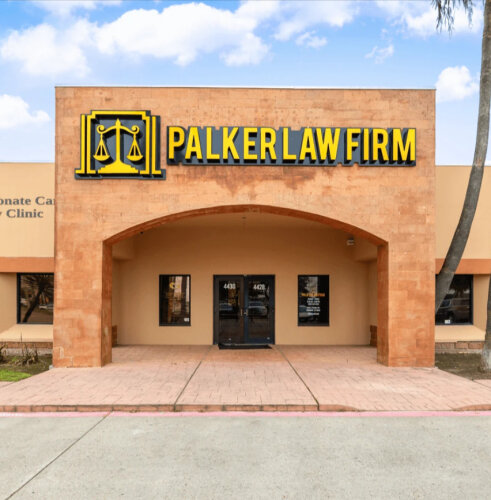Best Work Injury Lawyers in Edinburg
Share your needs with us, get contacted by law firms.
Free. Takes 2 min.
List of the best lawyers in Edinburg, United States
About Work Injury Law in Edinburg, United States
Work injury law in Edinburg follows Texas state law. Workers who are hurt on the job may be entitled to benefits under the Texas workers' compensation system if their employer carries coverage. Texas is unique in that private employers are not required to have workers' compensation insurance - some employers choose to provide coverage, and others do not. When an employer does provide workers' compensation, that system generally governs medical care and lost-wage benefits and typically limits the worker's ability to sue the employer for negligence. When an employer does not carry coverage, injured workers may pursue ordinary civil claims against their employer in court. In all cases, injured workers may have claims against third parties who caused or contributed to the injury.
Why You May Need a Lawyer
Many workplace-injury situations benefit from legal help. Common reasons to consult an attorney include:
- Your employer denies that the injury is work-related or denies your claim for benefits.
- Your employer is a non-subscriber - that is, it does not carry workers' compensation - and you need to evaluate or pursue a civil lawsuit.
- You have a serious injury with permanent impairment, long-term care needs, or significant lost earnings.
- Your claim for medical treatment, temporary income, impairment benefits, or vocational rehabilitation is disputed.
- You were hurt because of a third party - for example, a contractor, equipment manufacturer, or another driver - and you need help pursuing a third-party claim in addition to any workers' comp claim.
- You face retaliation, termination, or other adverse employment action after reporting an injury.
- You need help navigating the administrative process, meeting deadlines, collecting evidence, or preparing for a benefit review conference or hearing.
Local Laws Overview
Key aspects of Texas and local practice that are particularly relevant in Edinburg include:
- Employer coverage - Private employers in Texas are allowed to opt out of the state workers' compensation system. An employer that opts out is often called a non-subscriber. If your employer carries workers' compensation insurance, your benefits and disputes are generally handled through the Texas Division of Workers' Compensation system. If not, you may pursue a civil lawsuit against the employer.
- Exclusive remedy - When an employer participates in the workers' compensation system, the statutory benefits are typically the exclusive remedy against the employer for most workplace injuries. That means you normally cannot sue your employer in civil court for negligence, though you can sue third parties who share responsibility for the injury.
- Types of benefits - Workers' compensation covers reasonable and necessary medical care for the work-related injury, and may provide income benefits for time away from work, impairment benefits for permanent impairment, and death benefits for survivors. Vocational rehabilitation services may be available in cases where returning to prior employment is not possible.
- Administrative dispute resolution - Disputes over compensability, medical care, or benefits are usually handled through an administrative process including conferences and hearings before the state agency that administers workers' compensation. Parties can appeal administrative decisions to higher review bodies and, in some situations, to state courts.
- Third-party claims and statutes of limitation - Injured workers may sue third parties whose negligence caused the injury. Ordinary civil statutes of limitation apply to such lawsuits - injured workers should be mindful of filing deadlines and seek legal advice promptly.
- Local procedures - Edinburg is in Hidalgo County, so any court filings for civil actions will be made in the appropriate Hidalgo County court. Administrative workers' compensation matters are handled at the state level through the Texas Division of Workers' Compensation offices and procedures.
Frequently Asked Questions
How do I report a workplace injury in Edinburg?
Report the injury to your employer as soon as possible. Provide a clear written notice describing how and when the injury occurred. Seek medical attention promptly for your injury and follow your employer's reporting procedures. Keep copies of all reports and any medical records you obtain.
What if my employer does not have workers' compensation insurance?
If your employer does not carry workers' compensation, you may be able to file a lawsuit against the employer under ordinary negligence or other civil theories. Non-subscriber claims can be more complex because they involve civil litigation rather than the administrative workers' compensation system. Consult a lawyer to evaluate your options and potential damages.
Can I sue my employer if I am covered by workers' compensation?
Generally, if your employer participates in the workers' compensation system, workers' comp is the exclusive remedy for most workplace injuries and you cannot sue your employer for negligence. Exceptions are limited and fact-specific. You can still pursue claims against third parties who contributed to your injury.
What benefits can I expect if my claim is accepted?
Accepted claims typically cover reasonable and necessary medical treatment related to the workplace injury. If you miss work because of the injury, you may be eligible for income benefits. Permanent impairment benefits and vocational rehabilitation may be available if your injury causes lasting impairment or prevents you from returning to your prior job. Death benefits may be available to dependents in fatal cases.
What should I do if my claim or medical treatment is denied?
Document the denial and the reasons given. Keep copies of all communications and medical records. You may be able to request a benefit review conference or administrative hearing to contest denials. An attorney experienced in workers' compensation can help you prepare a response, present evidence, and represent you in hearings.
Do I need a lawyer for a workers' comp claim in Edinburg?
Not every claim requires a lawyer, but legal representation is advisable when benefits are denied, when injuries are severe, when the employer is a non-subscriber, when you have a potential third-party claim, or when disputes involve complex medical or vocational issues. A lawyer can protect your rights and help you navigate deadlines and procedures.
Will filing a workers' compensation claim cost me my job?
State and federal laws protect workers from retaliation for filing legitimate injury claims or for asserting their rights. If you believe you were fired or otherwise retaliated against for filing a claim, you should consult an attorney promptly to explore options for relief. Keep records of any discipline or adverse actions that followed your injury report.
How long do I have to take action after a work injury?
There are time limits for different types of actions. Administrative deadlines for filing or contesting a workers' compensation claim and civil statutes of limitation for personal injury lawsuits can vary. Because missing a deadline can forfeit important rights, contact a lawyer or the appropriate state agency promptly to learn the exact timeframes that apply to your situation.
Can I pursue a third-party lawsuit while receiving workers' compensation?
Yes. Receiving workers' compensation benefits does not prevent you from suing a third party who caused or contributed to your injury. Common third parties include independent contractors, equipment manufacturers, property owners, or other negligent drivers. A lawyer can help coordinate a third-party lawsuit alongside a workers' comp claim.
What should I bring to a legal consultation about my workplace injury?
Bring documentation such as written reports to your employer, medical records, bills, pay stubs, correspondence with your employer or the insurance company, witness names and contact information, photos of the scene or injuries, and any relevant employment records. A lawyer can review these items and advise you on next steps.
Additional Resources
Resources that can help people with work injuries in Edinburg include state and federal agencies, local government offices, and professional referral services. Consider contacting the Texas Division of Workers' Compensation for information about the state workers' compensation system and administrative procedures. The U.S. Department of Labor and the Occupational Safety and Health Administration are resources for workplace safety and federal standards. For legal help, use the State Bar of Texas lawyer referral service or local legal aid organizations if you need low-cost assistance. Hidalgo County court clerks can provide information about filing civil suits in the county. Local hospitals and medical providers can provide acute and ongoing treatment and documentation of injuries.
Next Steps
If you have been injured at work in Edinburg, consider taking these steps right away:
- Seek medical care immediately. Your health is the priority. Tell the treating provider that the injury occurred at work so the visit is properly documented.
- Report the injury to your employer in writing as soon as possible. Keep a copy of the report for your records.
- Preserve evidence - take photos, keep records of witness names, save damaged equipment or clothing if appropriate, and maintain copies of all medical and employment records.
- Review your employer's insurance status - ask whether your employer carries workers' compensation coverage. If uncertain, consult an attorney or the state agency.
- Contact an experienced work-injury attorney for a consultation if your claim is denied, your injury is serious, your employer is a non-subscriber, or you have questions about third-party claims. Many attorneys offer an initial consultation and can explain potential fees and next steps.
- Follow prescribed medical treatment and keep detailed records of medical visits, prescriptions, restrictions, and time missed from work.
- Be mindful of deadlines and act promptly - administrative and legal time limits may apply.
If you are unsure how to proceed, seeking legal advice early helps protect your rights and ensures you do not miss important opportunities to obtain benefits or pursue claims.
Lawzana helps you find the best lawyers and law firms in Edinburg through a curated and pre-screened list of qualified legal professionals. Our platform offers rankings and detailed profiles of attorneys and law firms, allowing you to compare based on practice areas, including Work Injury, experience, and client feedback.
Each profile includes a description of the firm's areas of practice, client reviews, team members and partners, year of establishment, spoken languages, office locations, contact information, social media presence, and any published articles or resources. Most firms on our platform speak English and are experienced in both local and international legal matters.
Get a quote from top-rated law firms in Edinburg, United States — quickly, securely, and without unnecessary hassle.
Disclaimer:
The information provided on this page is for general informational purposes only and does not constitute legal advice. While we strive to ensure the accuracy and relevance of the content, legal information may change over time, and interpretations of the law can vary. You should always consult with a qualified legal professional for advice specific to your situation.
We disclaim all liability for actions taken or not taken based on the content of this page. If you believe any information is incorrect or outdated, please contact us, and we will review and update it where appropriate.










